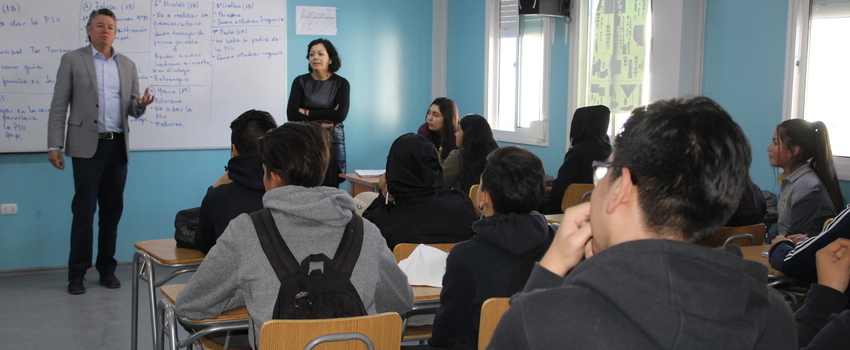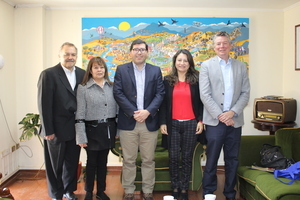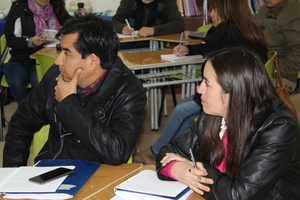- News
ULS and National Geographic Society seek to promote geographical inquiry in students of the Coquimbo Region

The actions will be carried out through the “Geo - Inquiry” Project, promoted nearly four years ago by the National Geographic Society in the United States and Canada, which will be carried out for the first time in a Latin American country.
Four communes in the Coquimbo Region were selected to carry out the “Geo Inquiry - Chile” project, an initiative that aims to install investigative skills and enhance geographic education in schoolchildren from educational establishments and teachers in training. The premise lies mainly in investigating a local problem and thus achieving an improvement in its environmental environment using the National Geographic Society (NGS) model.
 The “Geo - Inquiry” model has been executed to date in countries mainly in North America, obtaining important results from the participating students. The research process lies mainly in the scientific method of posing a problem, collecting information, visualizing it, creating a solution and executing it, from the approach of citizen and geographical education.
The “Geo - Inquiry” model has been executed to date in countries mainly in North America, obtaining important results from the participating students. The research process lies mainly in the scientific method of posing a problem, collecting information, visualizing it, creating a solution and executing it, from the approach of citizen and geographical education.
“The main purpose of 'Geo - Inquiry' is for students to learn the perspective and skills of an explorer and apply them to a local problem. As a result of this work, we hope that the next generation will have the inspiration, confidence and skills to make real, positive changes at the local, national and global levels,” explains Northem Iowa University geographer Dr. Alex Oberle, director of the project from the NGS in the United States.
The team in Chile is led by the ULS academic, Dr. Fabián Araya, who together with Dr. Sandra Álvarez, professionals from the study house and professors representing the communes of La Serena, Monte Patria, Río Hurtado and Paihuano, will work on five investigations that will address different topics focused on citizen education and the sustainability of the regional territory.
“The Geo-Inquiry project is a very appropriate initiative for the Coquimbo Region, as it links geographical research with the local territory and allows the identification of real problems for which students must propose relevant and feasible solutions. This methodology is at the base of the process of renewal of the pedagogical careers of the University of La Serena, as it allows the development of interest in research into local and regional problems,” said Dr. Araya, who currently directs the Unit. of Integrated Management of ULS Pedagogies.
 The research topics will be related to the use of water in a local context, wetlands and their connection with the community, geographic literacy from citizen education, the heritage rescue of the railway culture, and the cultural and natural heritage of Rio Hurtado.
The research topics will be related to the use of water in a local context, wetlands and their connection with the community, geographic literacy from citizen education, the heritage rescue of the railway culture, and the cultural and natural heritage of Rio Hurtado.
In this way, there will be 124 primary and secondary school students, and 30 fourth-year Ped students. in History and Geography ULS, who will be in charge of investigating and proposing possible solutions to the problems established in their respective communes.
In this context, during the month of September, Dr. Oberle, together with the team from the University of La Serena, made several visits to the participating communities with the purpose of detailing the project and highlighting the importance it will have for the local community.
“In Chile, the US and all countries in the world, people would like to improve and advance their communities at a local level, and precisely the heart of Geo - Inquiry is based on citizen education, and that every person has the ability to make positive changes in your community or neighborhood. Apart from citizen training, Geo - Inquiry imparts geographic and integration skills. This project represents a way to establish links between the NGS explorers and the teachers/students of Chile, and I am confident that the participants will achieve great results, which will allow the dissemination of the 'Geo-Inquiry' research model to other localities in Chile and other Latin American countries,” emphasized the NGS geographer.
Written by Daniela Ledezma, UGIP
